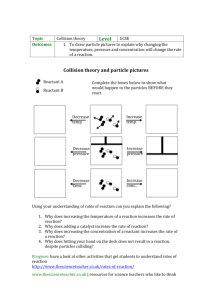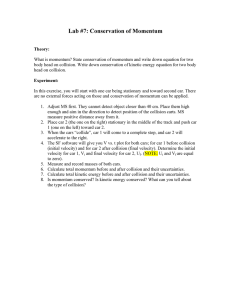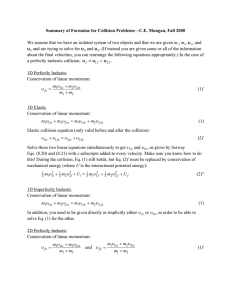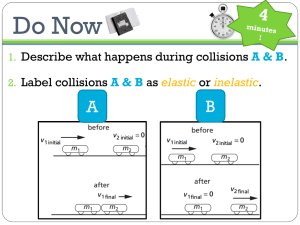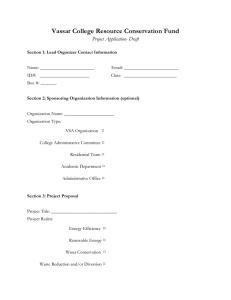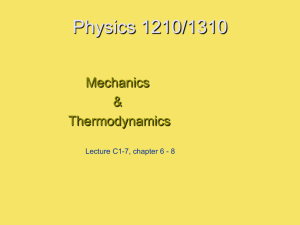Document 13608222
advertisement
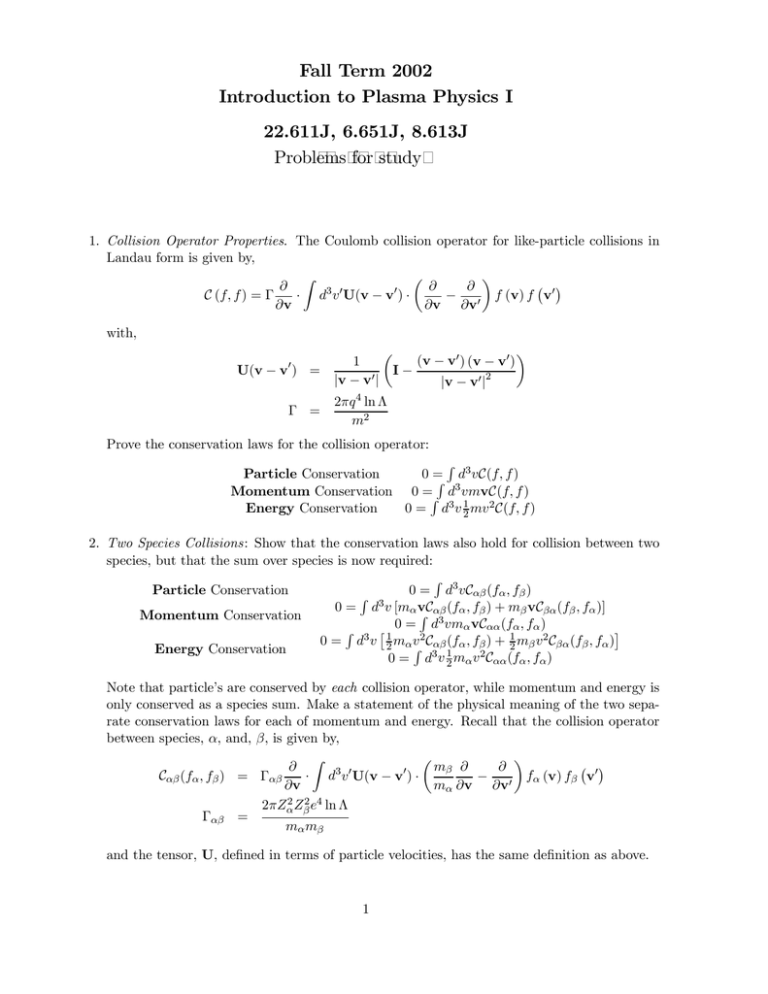
Fall Term 2002 Introduction to Plasma Physics I 22.611J, 6.651J, 8.613J Problems for study 1. Collision Operator Properties. The Coulomb collision operator for like-particle collisions in Landau form is given by, ¶ µ Z ¡ ¢ ∂ ∂ ∂ 0 3 0 − f (v) f v0 C (f, f ) = Γ · d v U(v − v ) · 0 ∂v ∂v ∂v with, 0 U(v − v ) = Γ = µ ¶ (v − v0 ) (v − v0 ) I− |v − v0 |2 2πq 4 ln Λ m2 1 |v − v0 | Prove the conservation laws for the collision operator: R Particle Conservation 0 =R d3 vC(f, f ) Momentum Conservation 0 =R d3 vmvC(f, f ) Energy Conservation 0 = d3 v 12 mv 2 C(f, f ) 2. Two Species Collisions: Show that the conservation laws also hold for collision between two species, but that the sum over species is now required: R Particle Conservation 0 = d3 vCαβ (fα , fβ ) R 3 (fα , fβ ) + mβ vCβα (fβ , fα )] 0 = d v [mα vC R αβ Momentum Conservation 3 £ 0 = d vmα vCαα (fα , fα ) ¤ R 0 = d3 v 12 mα vR2 Cαβ (fα , fβ ) + 12 mβ v2 Cβα (fβ , fα ) Energy Conservation 0 = d3 v 12 mα v 2 Cαα (fα , fα ) Note that particle’s are conserved by each collision operator, while momentum and energy is only conserved as a species sum. Make a statement of the physical meaning of the two sepa rate conservation laws for each of momentum and energy. Recall that the collision operator between species, α, and, β, is given by, ¶ µ Z ¡ ¢ mβ ∂ ∂ ∂ 0 3 0 · d v U(v − v ) · Cαβ (fα , fβ ) = Γαβ fα (v) fβ v0 − 0 ∂v mα ∂v ∂v 2 2 4 2πZα Zβ e ln Λ Γαβ = mα mβ and the tensor, U, defined in terms of particle velocities, has the same definition as above. 1 3. Temperature Equilibration: Show that temperature equilibration proceeds according to a term of the form, r ∂ 3 me 2 nTe = −ν ei n (Te − Ti ) ∂t 2 mi π by taking the energy moment, Z 1 d3 v me v 2 Cei (femax , fimax ) 2 You may use the expanded form of, Cei , obtained by assuming a Maxwellian distribution for the ions, L E (fe ) + Cei (fe ) Cei ' Cei with the Lorentz collision operator, ve3 L (fe ) v3 ¢ ∂ 1 ∂ ¡ 1 − µ2 2 ∂µ ∂µ L Cei (fe ) ≡ ν ei L ≡ and the energy exchange operator, E (fe ) Cei ¸ · Ti ∂ 1 ∂ me 3 1 ∂ + fe = ν ei v 2mi e v2 ∂v me v2 ∂v v ∂v The electron-ion collision frequency defined as, ν ei ≡ 4πne4 ln Λ me ve3 p and we have used the convention, ve = Te /me , for the thermal velocity. n.b. different from convention in Landau problem to make expressions cleaner. . . What is the relative rate of angle scattering vs. thermalization for electrons scattering off ions? 2
